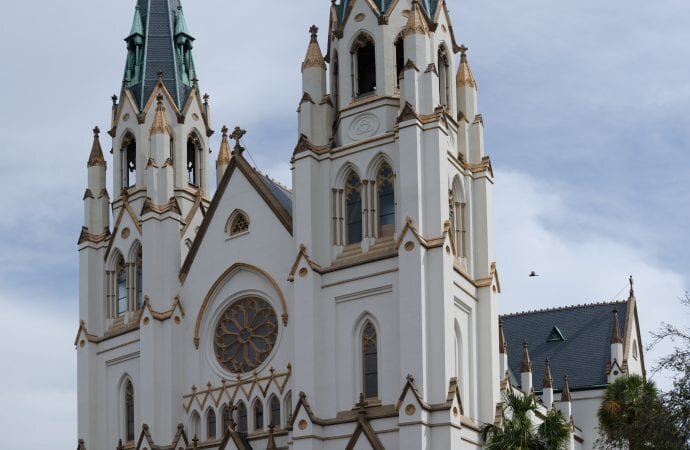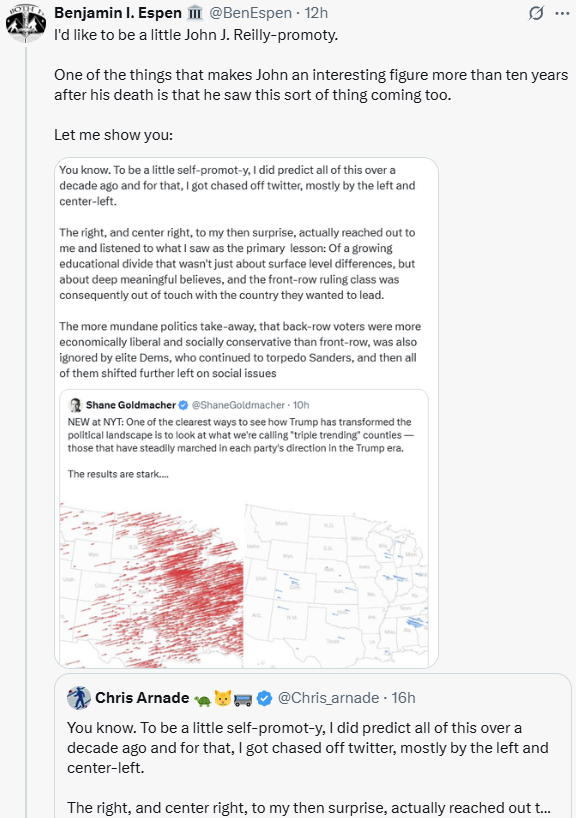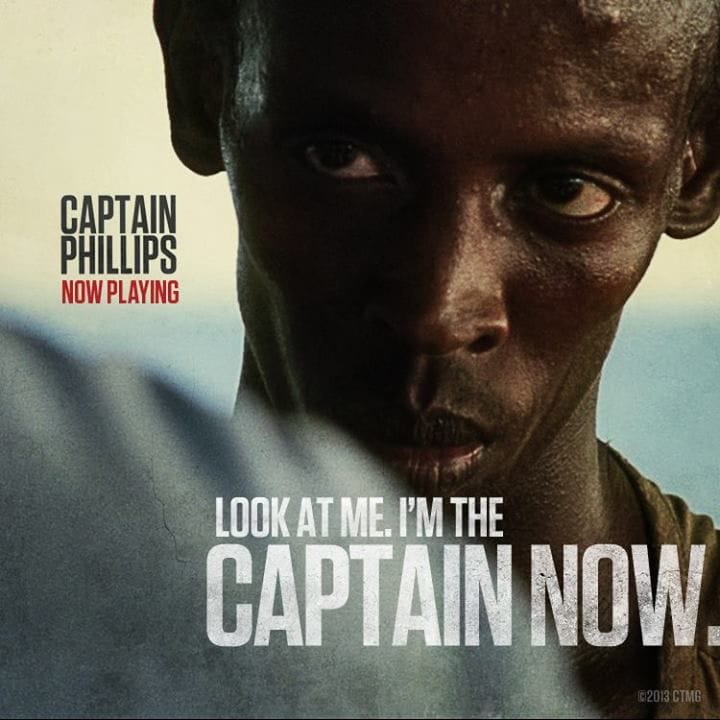The Long View 2007-11-06: New Jersey Election; The White Hart; Sox; Theopolitics; Mary Ann Glendon

The Cathedral of St. John the Baptist in Savannah, Georgia. (Credit: Tim Pierce/Wikimedia Commons (CC BY-SA 4.0).)
John makes a reference here to his essay, “The Coming Age of Cathedrals”, written in 1997(!), but which seems prescient now. This is of course because millenarian thought is always with us, but John was talking about the 1970s instead of 2020 when he referenced “decaying cities, a ruthless ruling class, economic collapse and impending ecological catastrophe“.
One of the services I offer here is meta-historical reassurance, the reminder that this too shall pass. I recommend you go read what John wrote more than twenty years ago and reflect upon what a couple of decades can bring.
New Jersey Election; The White Hart; Sox; Theopolitics; Mary Ann Glendon
This is an election day here in New Jersey, albeit of a somewhat Soviet kind. The entire state legislature is being elected, but in many counties, including mine, the Assembly and Senate seats are uncontested. Here just Democrats were on offer (there was an independent of some sort on the ballot for the Senate, though). I went to the polls nonetheless (I was voter 23 at 10:15 AM on a rainy morning) to vote on the Public Questions.
Perhaps acting from self-interest, I approved Question 4: it removed the language from the constitution that barred an "idiot or insane person" from voting. You can lose the right to vote if a court finds you are mad, however. The rest I voted against.
There was a bond authorization to fund conservation projects. Increasingly, I oppose the environment in all its forms, but especially when it involves the government of New Jersey "protecting" non-wilderness; God knows what they are really up to. There was a constitutional amendment that would have dedicated 1% of the state sales tax to property tax reduction. I am all for lowering property taxes, but the state's fiscal system is already Swiss cheese and I did not feel inclined to add another piece of constitutional bric-a-brac to do what the Legislature should be able to do in the ordinary budget process.
The item that received the most attention was another bond authorization for $450-million to pay for stem cell research. The question is really about state funding for embryonic stem-cell research. The use of embryonic stem-cells in medical research may or may not raise serious ethical questions. The funding for it is, however, pretty clearly a racket. At least it is a racket when this kind of research is being presented to the public as a medical panacea, however interesting the research may be as pure biology. I gather that this distorted funding actually takes resources away from somatic stem cell research. That is not a panacea either, but at least it's related to medicine.
* * *
This story made the hair rise on the back of my neck: I have only a video link and just a little text from WCCO.com in Minnesota:
(Minneapolis) In this season's deer opener, a Minnesota woman shot one of the rarest kinds around: Mary Rakotz of Avon got the six-point [albino] buck on Saturday in Mille Lacs County. Dennis Douda reports.
Why am I dismayed? Those are archetypical deer. Here's an iteration from The Hobbit, in the part of the story when Bilbo and the Dwarves are stranded in Mirkwood:
There they sat for a long while and did not dare to make a move. Bombur slept on with a smile on his fat face, as if he no longer cared for all the troubles that vexed them. Suddenly, on the path ahead appeared some white deer, hind and fawns as snowy white as the hart had been dark. They glimmered in the shadows. Before Thorin could cry out three of the dwarves had leaped to their feet and loosed off arrows from their bows. None seemed to find their mark. The deer turned and vanished in the trees as silently as they had come, and in vain the dwarves shot their arrows after them.
At the beginning of a myth, those deer come out of the wilderness to lead the protagonist hunter into the Other World. It's very bad luck to injure them.
No, I did not write the Slate article Why the Red Sox aren't the Red Socks. David Engber wrote it. In part, he wrote this:
The formation of the modern baseball leagues coincides, more or less, with a broad movement to simplify English spelling...Near the turn of the century, advocacy groups like the Spelling Simplification Board pushed for spelling reform with renewed vigor;...By the first decade of the 1900s, "sox" was already a common way to shorten "socks." The "x" version of the word frequently appeared in advertisements for hosiery, for example. And in his 1921 tome The American Language, H.L. Mencken described "sox" as a "vigorous newcomer." "The White Sox are known to all Americans; the White Socks would seem strange," he wrote.
See Theodore Roosevelt's thoughts on these matters here.
And I am not a Red Sox fan. Or a Red Socks fan either.
* * *
Moving from orthography to theopolitics: Spengler at Asia Times has an illuminating review of Fergus Kerr's Twentieth-Century Catholic Theologians by Fergus Kerr:
It may seem eccentric to hail a theological text by a Scots Dominican...as the year's most important work on global strategy. To win a gunfight, first you have to bring a gun, and to win a religious war, you had better know something about religion....We are left with the anomaly that the only effective leader of the West is a man wholly averse to war, a pope who took his name from the Benedict who interceded for peace during World War I. Benedict XVI, alone among the leaders of the Christian world, challenges Islam as a religion, as he did in his September 2006 Regensburg address. ..I do not view religion as an instrument for strategic ends. On the contrary: we are in a strategic crisis precisely because religion is not an instrument, but rather the expression of the existential requirements of humankind. ...Kerr's subtitle is, From Neo-Scholasticism to Nuptial Mysticism. By this he means something quite accessible to laymen and non-Catholics. Between the early years of the 20th century, and the papacies of Wojtila and Ratzinger, emphasis in Catholic theology shifted from attempting to prove the tenets of the faith by philosophical argument, to portraying God's self-revelation through love by reference to such Biblical texts as the "Song of Songs". The present pope's first encyclical, Deus Caritas Est ("God is Love"), summarizes what Kerr calls "nuptial mysticism"....What was taught in the name of Thomism, though, bore little resemblance to the actual views of the "Angelic Doctor", Kerr avers. Instead, the Church had adopted a form of Enlightenment rationalism deriving from the 16th-century Jesuit Francisco Suarez....Henri de Lubac rejected this mechanical concept of natural law, then taught as Thomism. What St Thomas in fact believed, de Lubac contended, is that "human beings were destined by nature to enjoy by divine grace everlasting bliss with God [Kerr]." This concept of "natural law" explains why peoples who repudiate grace tend towards self-destruction..
So, maybe Vatican II really was about Ressourcement, a return to the sources, but not to the patristic sources, as many of the Council fathers supposed. The Council was necessary: the Church had clung to a Baroque version of modernity that got shabbier and shabbier every year. Could it really be the case that the long-term effect of the Council will be the return of the High Middle Ages?
* * *
Perhaps by accident, the Bush Administration seems to be about to make a perfect diplomatic appointment, though not for the reasons the media suppose. The Associated Press tells us:
WASHINGTON (AP) — President Bush plans to nominate Harvard University law professor Mary Ann Glendon to be his new U.S. ambassador to the Vatican.
Glendon, 69, is an anti-abortion scholar and an opponent of gay marriage who also has written on the effects of divorce and increased litigation on society. Her 1987 book "Abortion and Divorce in Western Law" was critical of the Supreme Court's 1973 Roe v. Wade decision that established a legal right to abortion.
Well, yes, she is pro-life, but her day job at Harvard is as a professor of comparative law, particularly as it relates to human rights issues. There is more than one transnationalism, you know.



Comments ()